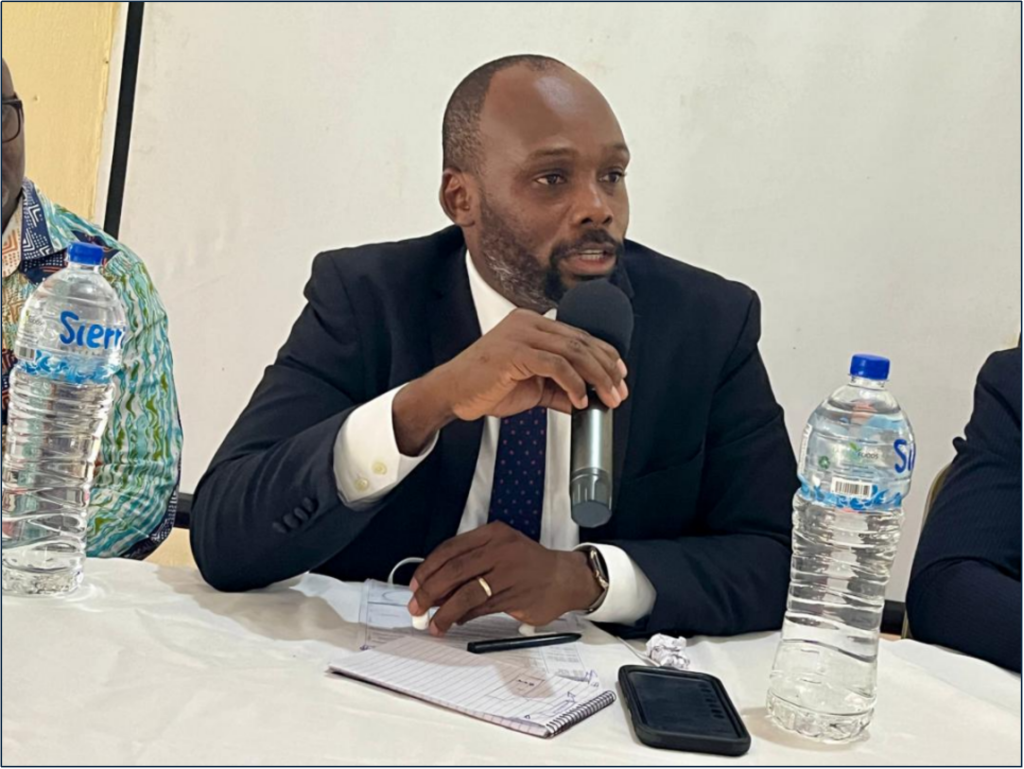EPI Manager – Desmond M. Kangbai
By Ibrahim Sorie Koroma
The Government of Sierra Leone through the Expanded Programme on Immunization in the Ministry of Health, in collaboration with its partners, is planning to protect over 355,363 newborn babies with over 457,272 doses of FREE Hepatitis B vaccine in 2025.
The vaccine will be administered at birth within the first 24 hours of birth. This was made known at a recent stakeholders meeting held in Freetown.
Given the Goal of the planned vaccination roll-out campaign, Dr Desmond Maada Kangbai, Programme Manager of – Expanded Programme on Immunization, said that the main focus is to reduce the prevalence and incidence of hepatitis B infection among children under five years of age in the country, as part of a global target to elimination the disease by 2030, adding that the key objective is to reach and vaccinate 95% children with the much needed lifesaving vaccine at birth, to prevent perinatal transmission of Hepatitis B virus, introduce (routinize) Hepatitis-B Birth Dose vaccine into the country’s immunization schedule to improve coverage of other antigens (e.g., BCG) at birth, thereby limiting the risks of morbidity and mortality of Hepatitis B infection in young children.
Talking about the efficacy of the vaccine, Dr Kangbai said that the vaccine is 98% effective in the prevention of viral Hepatitis type B infection, as well as liver cancer as a result of the disease. He reiterated that the three doses, including the 1st dose at birth and the other 22 doses given as Pentavalent (Penta) conjugate vaccine, can ensure 98–100% protection against Hepatitis-B infection, with protection lasting for at least 20 years – and probably for life.
The EPI Manager further emphasized that the vaccine is prequalified by the WHO and recommends that all infants should receive their first dose of the Hepatitis B vaccine as soon as possible after birth, preferably within 24 hours, adding that the WHO’s recommendation is also reinforced by the US Centers for Disease Prevention and Control (CDC), which also recommends giving hepatitis B vaccine birth dose to every newborn before hospital discharge.
Updating on the trend of the disease and countries in Africa that have introduced the vaccine, Dr. Kangbai noted that 70% of hepatitis B infections occur in Africa and only 14 out of 47 African countries had introduced a routine birth dose of hepatitis B vaccine by 2021, and only 18% of African infants received a birth dose in 2022.
“Hepatitis B vaccination of infants is considered one of the key components of Global Health Sector Strategy on Viral Hepatitis 2016-2021 endorsed by WHO, and supports achieving the UN Sustainable Development Goal of eliminating viral hepatitis as a major public threat by 2030”, Dr Kangbai Noted.
He concluded by estimating that high coverage with a birth dose of the hepatitis B vaccine, followed by at least two more doses, can prevent 710,000 deaths in the cohort of children born between 2020 and 2030 alone and that 78% of these children are accounted for in Africa.
